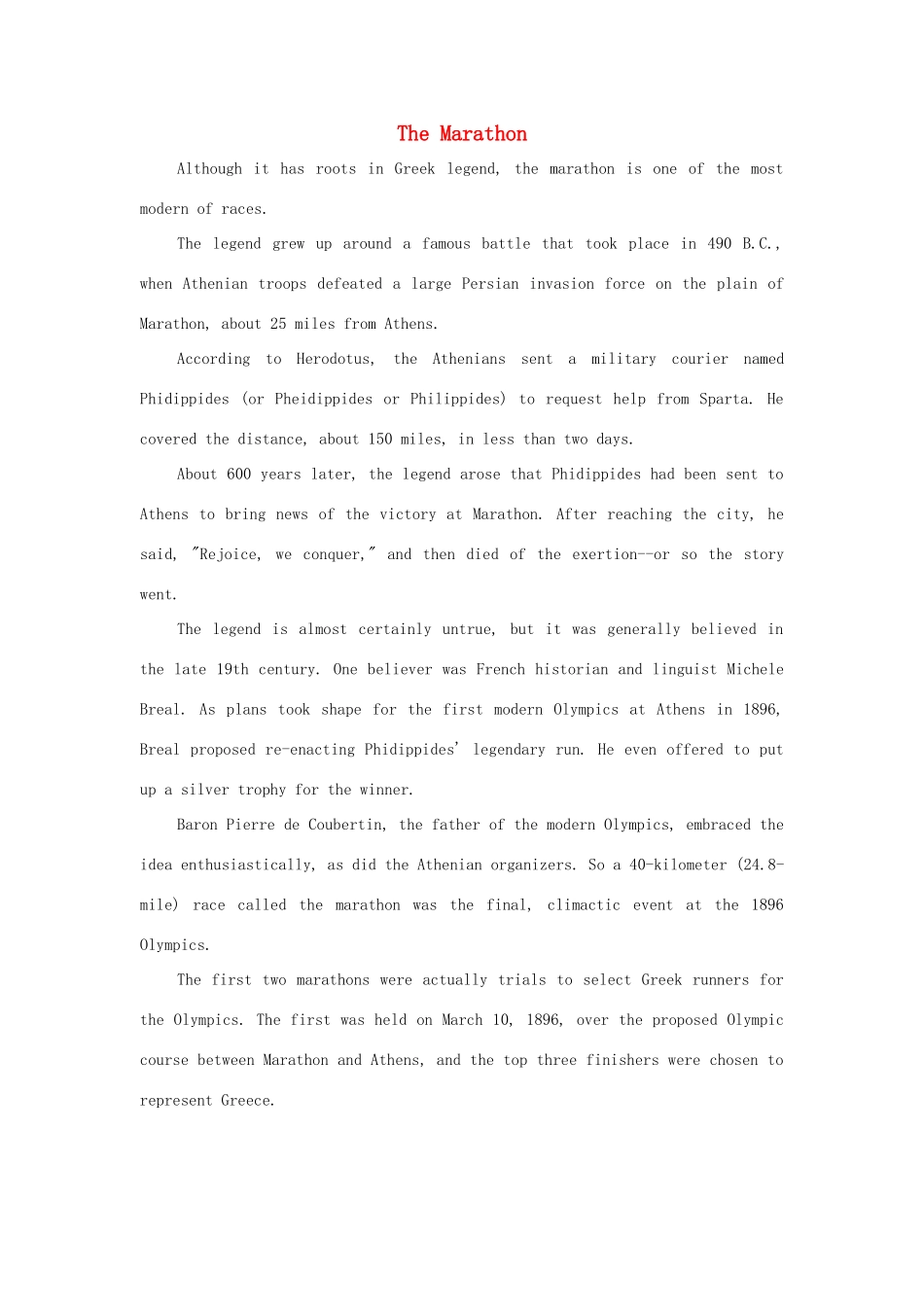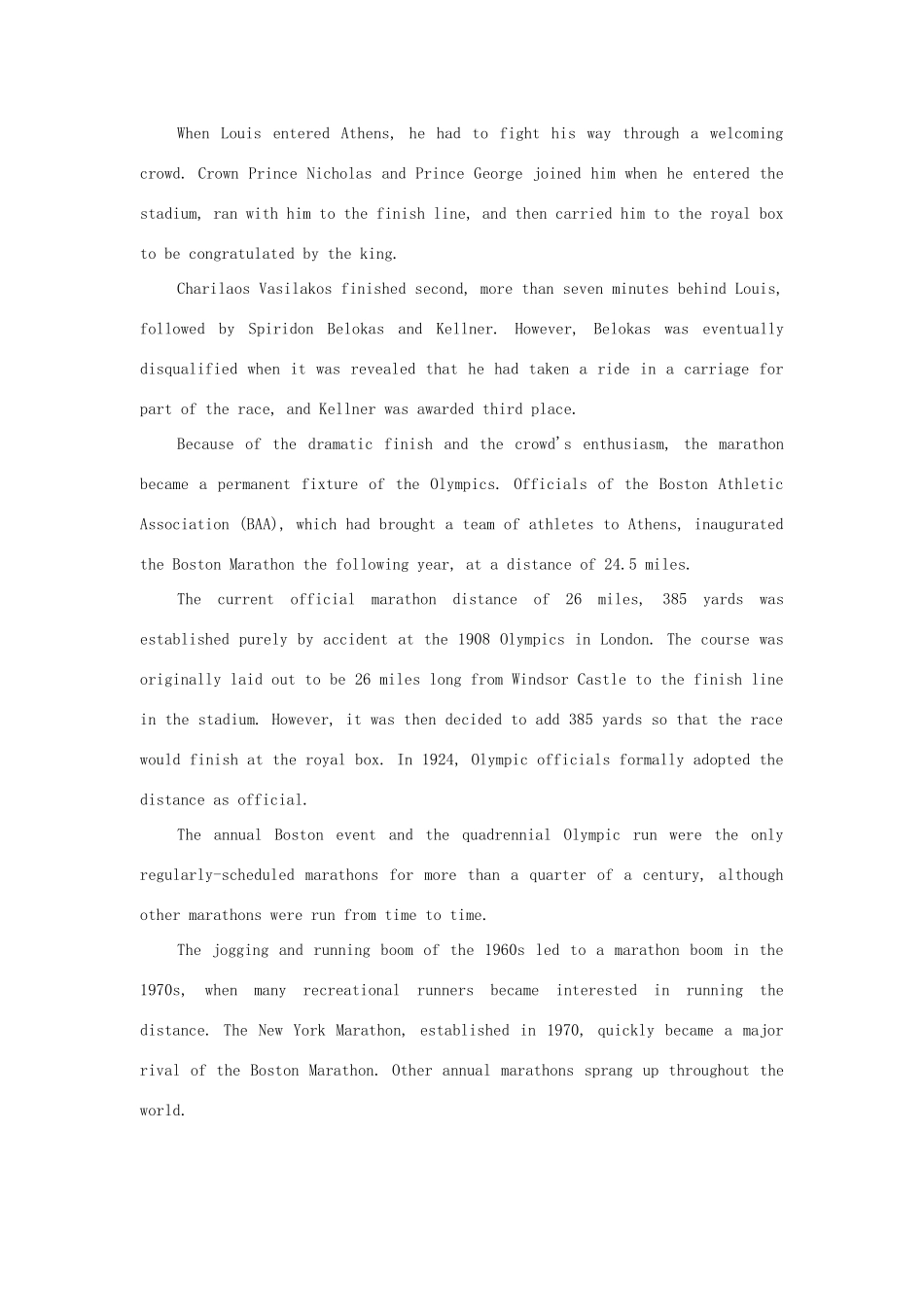The MarathonAlthough it has roots in Greek legend, the marathon is one of the most modern of races.The legend grew up around a famous battle that took place in 490 B.C., when Athenian troops defeated a large Persian invasion force on the plain of Marathon, about 25 miles from Athens.According to Herodotus, the Athenians sent a military courier named Phidippides (or Pheidippides or Philippides) to request help from Sparta. He covered the distance, about 150 miles, in less than two days. About 600 years later, the legend arose that Phidippides had been sent to Athens to bring news of the victory at Marathon. After reaching the city, he said, "Rejoice, we conquer," and then died of the exertion--or so the story went.The legend is almost certainly untrue, but it was generally believed in the late 19th century. One believer was French historian and linguist Michele Breal. As plans took shape for the first modern Olympics at Athens in 1896, Breal proposed re-enacting Phidippides' legendary run. He even offered to put up a silver trophy for the winner.Baron Pierre de Coubertin, the father of the modern Olympics, embraced the idea enthusiastically, as did the Athenian organizers. So a 40-kilometer (24.8-mile) race called the marathon was the final, climactic event at the 1896 Olympics.The first two marathons were actually trials to select Greek runners for the Olympics. The first was held on March 10, 1896, over the proposed Olympic course between Marathon and Athens, and the top three finishers were chosen to represent Greece.Greek officials held a second trial just a few days before the Olympic opening and added several more runners to the team, including a shepherd named Spiridon Louis, who fi...


